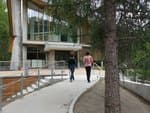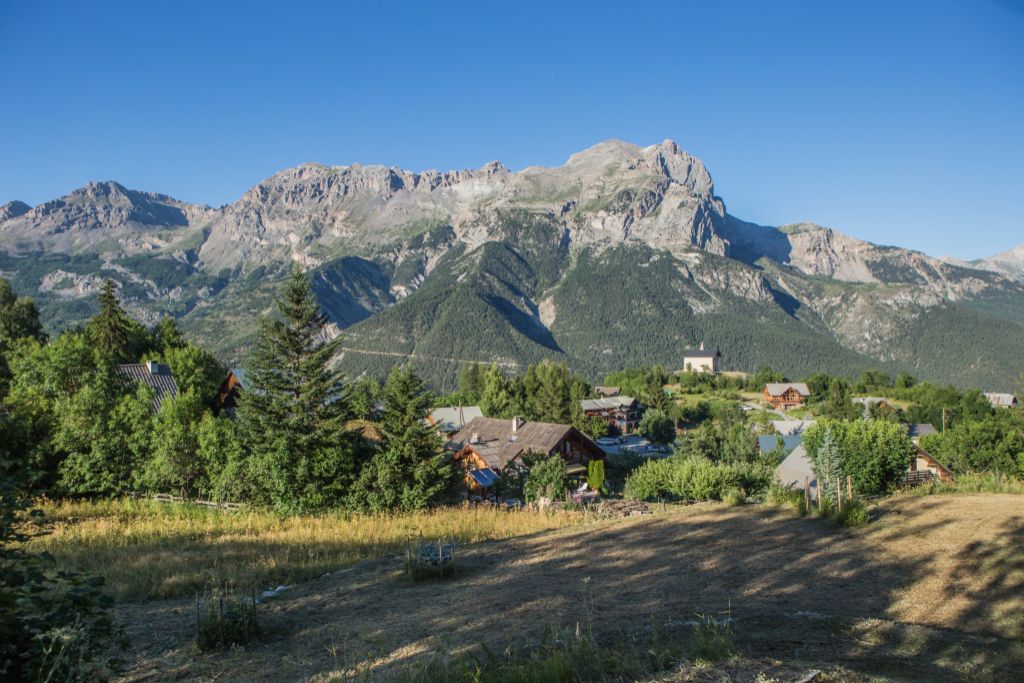
The architecture of Puy
A small piece of land near a source, in a cool, nicely shaded spot - everything the valley dwellers need to improve their daily lives. Here they grew hemp until the 1920s. When a will was read, the heirs were as keen to inherit a “hemp field" as a vineyard!
Description
The trail begins on the Puy-Saint-Vincent church forecourt. With your back to the church, follow the road on the right as far as the intersection.
- Then turn right and follow the road to the next crossroads.
- Turn right into the road leading to the starting point in front of the church.
- Departure : Puy-Saint-Vincent
- Towns crossed : Puy-Saint-Vincent
Altimetric profile
Information desks
Vallouise Park house
, 05290 Vallouise
Information, documentation, models, exhibitions, screenings, product sales and works of the Park. Guided tours for school, reservation required. The new Park House opened in Vallouise since June 1, and offers visitors an interactive permanent exhibition inviting to explore the area and its heritage. A temporary exhibition space will allow a renewed offer. Finally, the device is completed by an audiovisual room to organize screenings and conferences Free admission. All animations of the Park are free unless otherwise stated.
Transport
Shuttle service from Briançon to Puy-Saint-Vincent (reserve 36 hours ahead of time on 04 92 502 505).
Access and parking
From Embrun, take the N94 towards Briançon. In L'Argentière-la-Bessée, turn right onto the D994E, then right again onto the D4 towards Puy-Saint-Vincent.
Parking :
6 points of interest
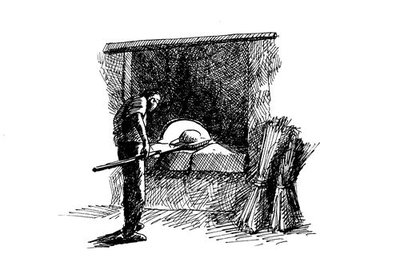
Le four banal - PNE  Architecture
ArchitectureThe commons
As «crosswise» as it might be, from end to end the main street of Puy-Saint-Vincent has every building the community needs. The mill is still here, complete with its intake and outlet mill races. The communal oven is lit on 14 July every year. It has just been restored and shares the little paved square with a lovely water fountain, made from wood and ringed with iron.
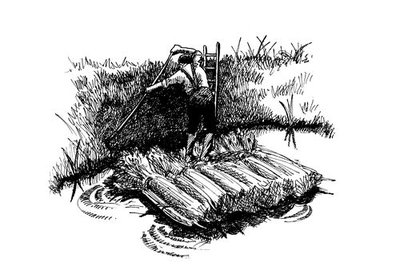
Rouissage du chanvre - PNE  Know-how
Know-howThe chenevières, hemp fields
There is a French saying «Avril donne le fil», meaning that April is string time. Sown in spring after the last frosts, the tall stems of hemp grow in tiny plots of ground, called chenabiers or chenevières. The hemp is cut at the end of August and the strands are immediately immersed in large holes filled with water - called the naïs - on the edge of wet meadows. They are left to steep for more than a month, in order to release all the gum that binds the plant fibres together.
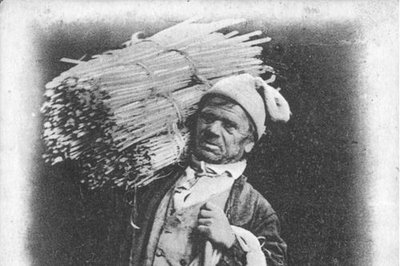
Paysan des hautes vallées - PNE  Know-how
Know-howHemp production
At one time, almost every winter evening would be taken up by stripping the fibre from the hemp straw. The strands had to be broken one by one, to remove the long, flexible filaments. Once washed and combed, these «balls» of hemp were taken to the rope and yarn spinners to be turned into rope, blankets and cloth for garments. When a family ordered cloth from the weaver, the entire family would go to the loom to attach the threads onto the warper.
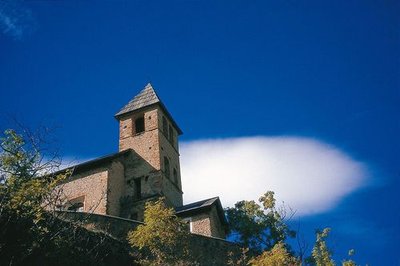
L'église de Puy-Saint-Vincent - Marie-Geneviève Nicolas - PNE  History
HistoryThe church of Sainte-Marthe
The church of Sainte-Marthe was built in the nineteenth century, in 1817 to be precise, as indicated at the top of the pediment. Only the main facade has a painted decoration. On two superimposed levels and on the gables, pilasters or false pillars frame either bay windows illuminating the nave, or panels painted with a false marble decoration. A few steles remind us of the present of the former cemetery. Included on the Supplementary Inventory of Historical Monuments, this church also contains a commemorative plaque honouring those who fell in the First World War.

 Architecture
ArchitectureProtective shelter
Separate from the main building and at a distance from the barn, some property owners also have a small building providing safety from the much feared home fires. Here, in the coolness of this outside cellar, they stored ham, cheeses, flour, salt and other foodstuffs, but also whatever the family owned by way of valuables.
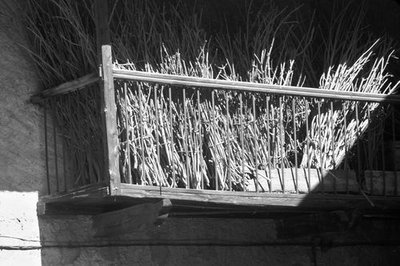
Séchage des fagots au balcon - PNE  Architecture
ArchitectureSolid architecture
Originally, the environment of the high valleys of the Pays des Écrins offered little space, in which men and animals cohabited. Unlike in Vallouise, where the architecture is a harmonious blend of arcades and decorative elements, the houses in Le Puy retain the rusticity of completely stone-built single block construction with half-hipped roofsprotruding over a drying balcony. This roof extension protects the main facade from bad weather, snow in particular. People can move about under shelter and the firewood store stays dry all winter. This barrel vaulted porch, which shelters the entrance to the main building and the stable, mirrors the Champsaur-Valguademar, «toune» (ground level arcade).
Source

Report a problem or an error
If you have found an error on this page or if you have noticed any problems during your hike, please report them to us here:

